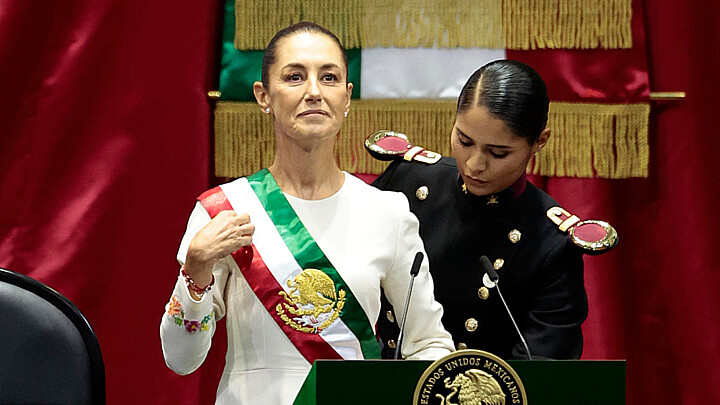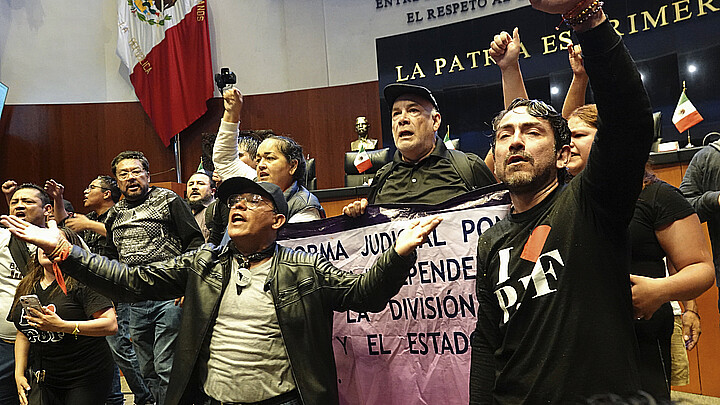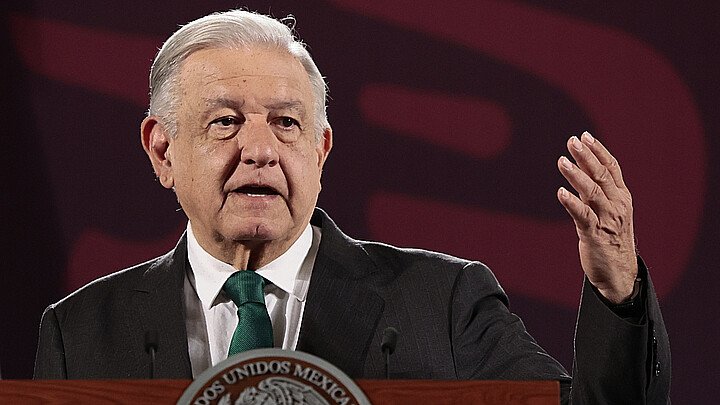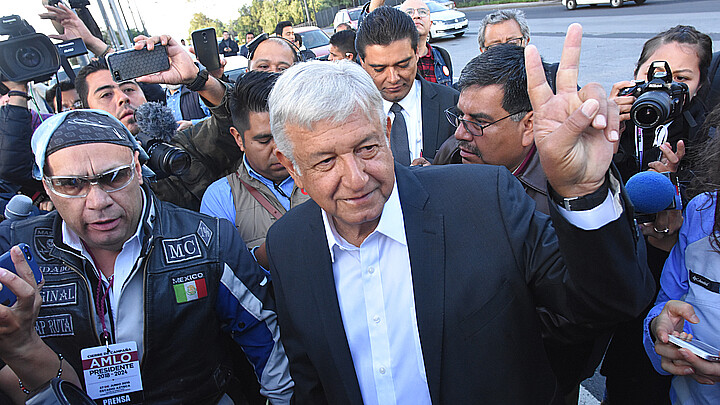Politics
Mexico primaries pin country's top female leaders in battle for presidency
The two women — Gálvez, 60, a successful technology businesswoman, and Sheinbaum, 61, a former physics professor are now pinned against one another in next year’s June 2 presidential election
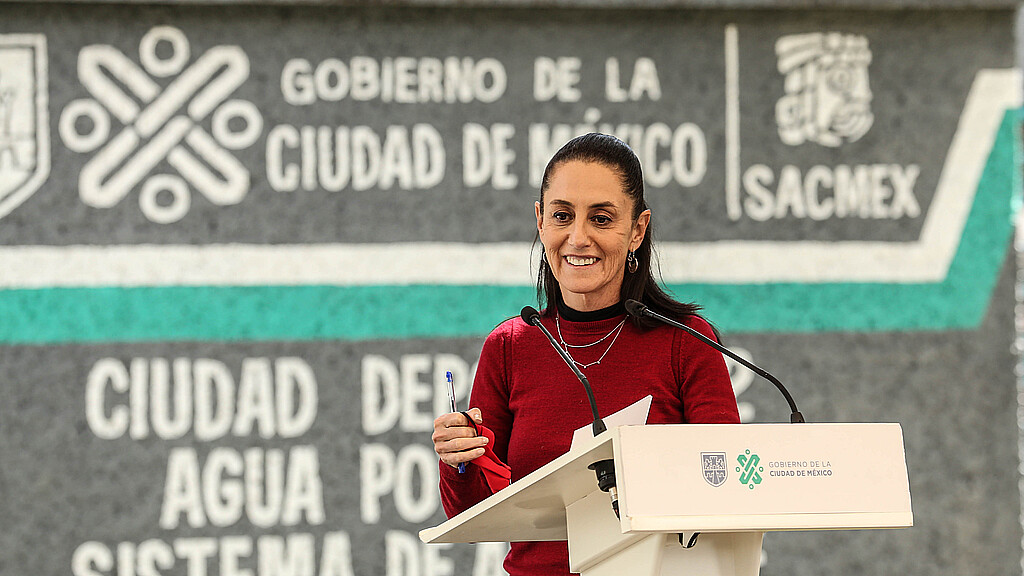
September 7, 2023 9:04am
Updated: September 7, 2023 9:04am
The Mexican MORENA ruling party elected former Mexico City Mayor Claudia Sheinbaum as its candidate for the upcoming 2024 presidential race, a move that suggests the North American country could elect its first female president.
But that’s not because MORENA has a shoe in victory.
Mexico’s most significant opposition coalition also elected a woman, Sen. Xóchitl Gálvez, as its nominee.
The two women — Gálvez, 60, a successful technology businesswoman, and Sheinbaum, 61, a former physics professor are now pinned against one another in next year’s June 2 presidential election.
Wednesday’s nomination wasn’t the only major political news creating headlines in Mexico, however, Sheinbaum’s party became the center of controversy as her chief rival raised concerns about the primary process.
Without getting specific, Marcelo Ebrard said there were “faults” in the process before the final vote was tallied and Sheinbaum’s victory was announced.
A former Mexican foreign minister, Ebrard called for a rerun of the internal polling, alleging that his campaign manager was unduly attacked by police when tried to monitor ballot counting in Mexico City.
“I never thought I would live [to see] something like this in my own party,” Ebrard tweeted.
MORENA officials dismissed Ebrard’s allegations and said there would be no new polling.
Sheinbaum won an estimated 39.4% of the votes in five internal polls, according to her political party while Ebrard was a distant second at 25.8 %. There were five other candidates, none of whom did not appear when the results were released to the public.
True or not, Ebrard’s accusations shined a light on shadowed internal conflicts within his party, an organization founded by President Andrés Manuel López Obrador.
In a detailed report published by The Los Angeles Times, the California newspaper said the revelations “now towers above the Mexican political landscape.”
MORENA and its members captured the Mexican Congress in previous elections, and the party is in charge of 21 of the 31 Mexican states, including the capital.
While Sheinbaum’s victory has inspired celebration in some corridors of her party, Ebrard’s allegations, which arose even before Wednesday, have cast a shadow of questions across the political landscape.
Some speculated that the former minister would accept a Cabinet post in Sheinbaum’s new administration after 2024, but rumors have since arisen he is now threatening to run as a third party candidate, which could railroad his own party.
So far, President López Obrador has rejected Ebrard’s claims and insisted the primary was fair, a move that did not come as a surprise to many since he considers himself a mentor to Sheinbaum.
“I haven’t tilted the balance,” Obrador told journalists Tuesday. “The dedazo is finished,” he explained, referring to the longtime Mexican custom in which sitting Mexican presidents point their “big finger” at their expected successor.
“The triumph of Sheinbaum was no surprise. For months, she had maintained a lead of 10 points or so in polling against Ebrard, who served as chief diplomat in the López Obrador government before resigning to run for president,” the Los Angeles Times reported.
While Sheinbaum’s victory is certainly not guaranteed, her close relationship with the current president and MORENA party leader has raised expectations she will be next in line.
López Obrador currently holds a strong 60% approval rating, and remains popular among working class voters.
Sheinbaum has followed her mentor’s politics, touting leftism and strong presidential rule.
López Obrador will finish his six-year term on Sept. 30, 2024. He is expected to retire since Mexican law prohibits reelection. Rumors circulated last year the embattled Mexican president could try to repeal the law, but those stories were quickly dismissed by the chief executive.
“Next year’s election is widely viewed as a test of whether López Obrador has built a long-term movement that maintains its dominance even after its charismatic leader steps down from power,” the Times opined.
If Sheinbaum is elected she will not only be the country’s first female president. She will also be the first Mexican president to serve with Jewish ancestry since her maternal and paternal grandparents emigrated to Mexico from Eastern Europe.
Some of the Mexico City native’s relatives reportedly struggled to escape persecution during the Holocaust.
The former physics professor got interested in politics early in life, participating in demonstrations in college, calling for the government to allow more poor students to attend.
She studied for four years at the Lawrence Berkeley National Laboratory in California and eventually achieved a doctorate in energy engineering.
She then went on to teach at the National Autonomous University of Mexico.
In 2000, then Mexico City Mayor López Obrador opened a door for her to enter politics, and offered her the post of secretary of environment for the city. In 2022, 25% of Mexico’s mayors were female.
There are currently eight female governors in Mexico’s 31 states and a woman heads the Supreme Court as Chief Justice.

